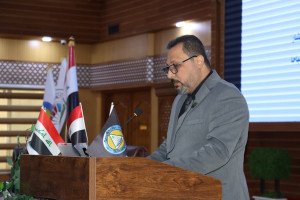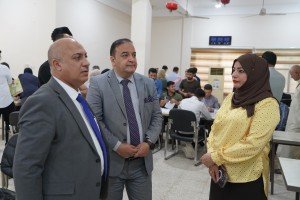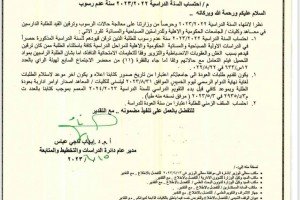
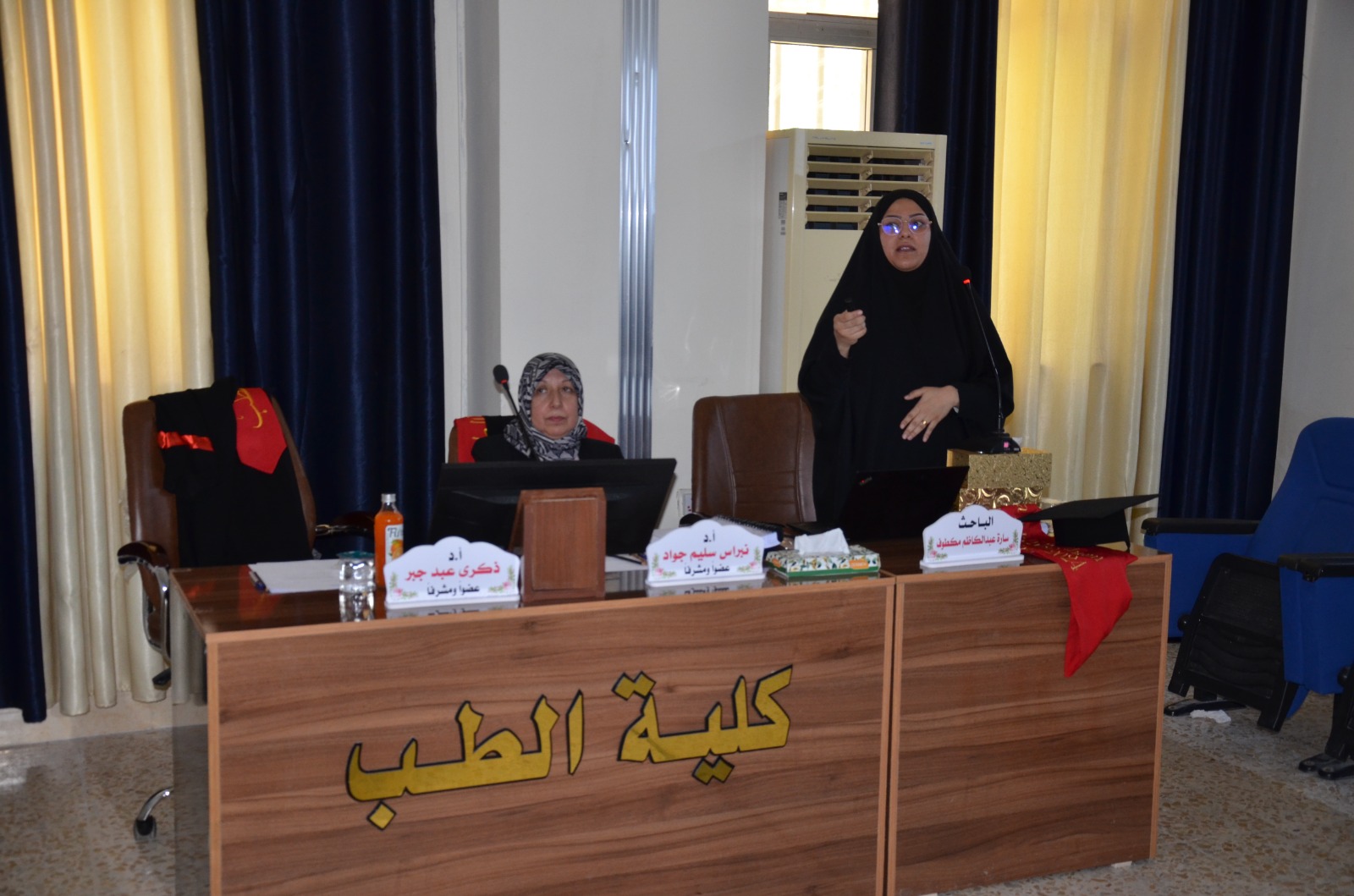
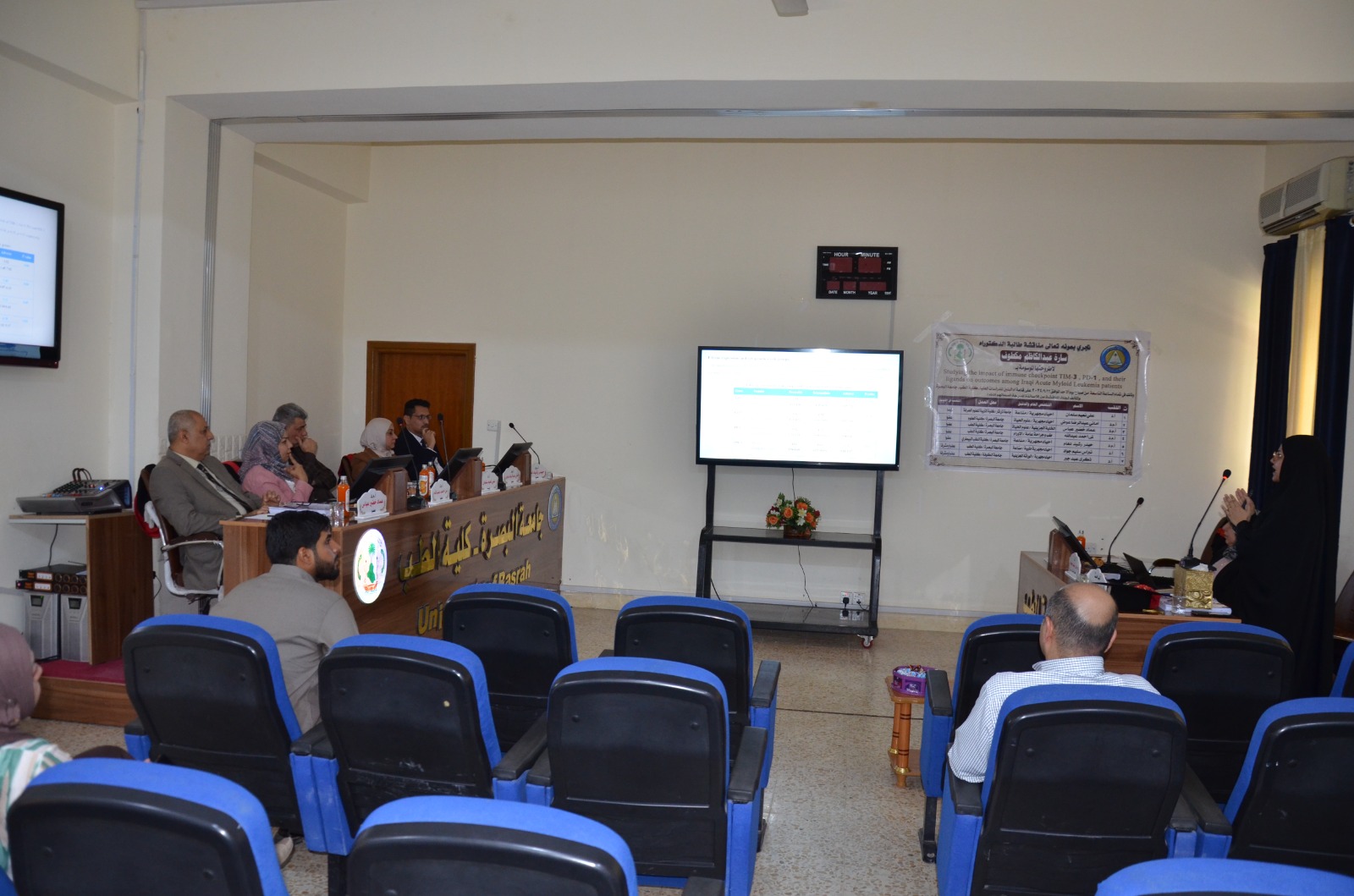
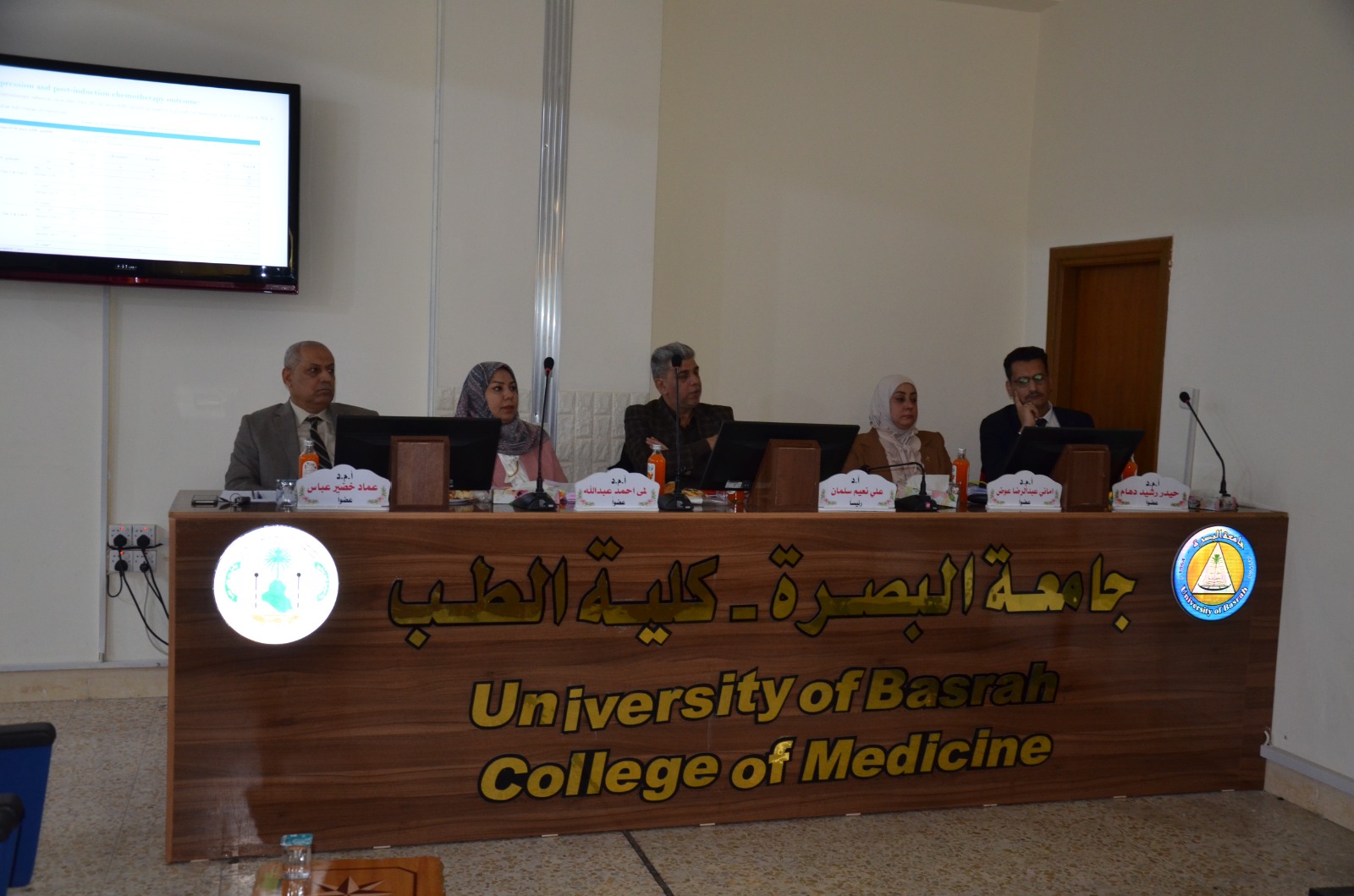
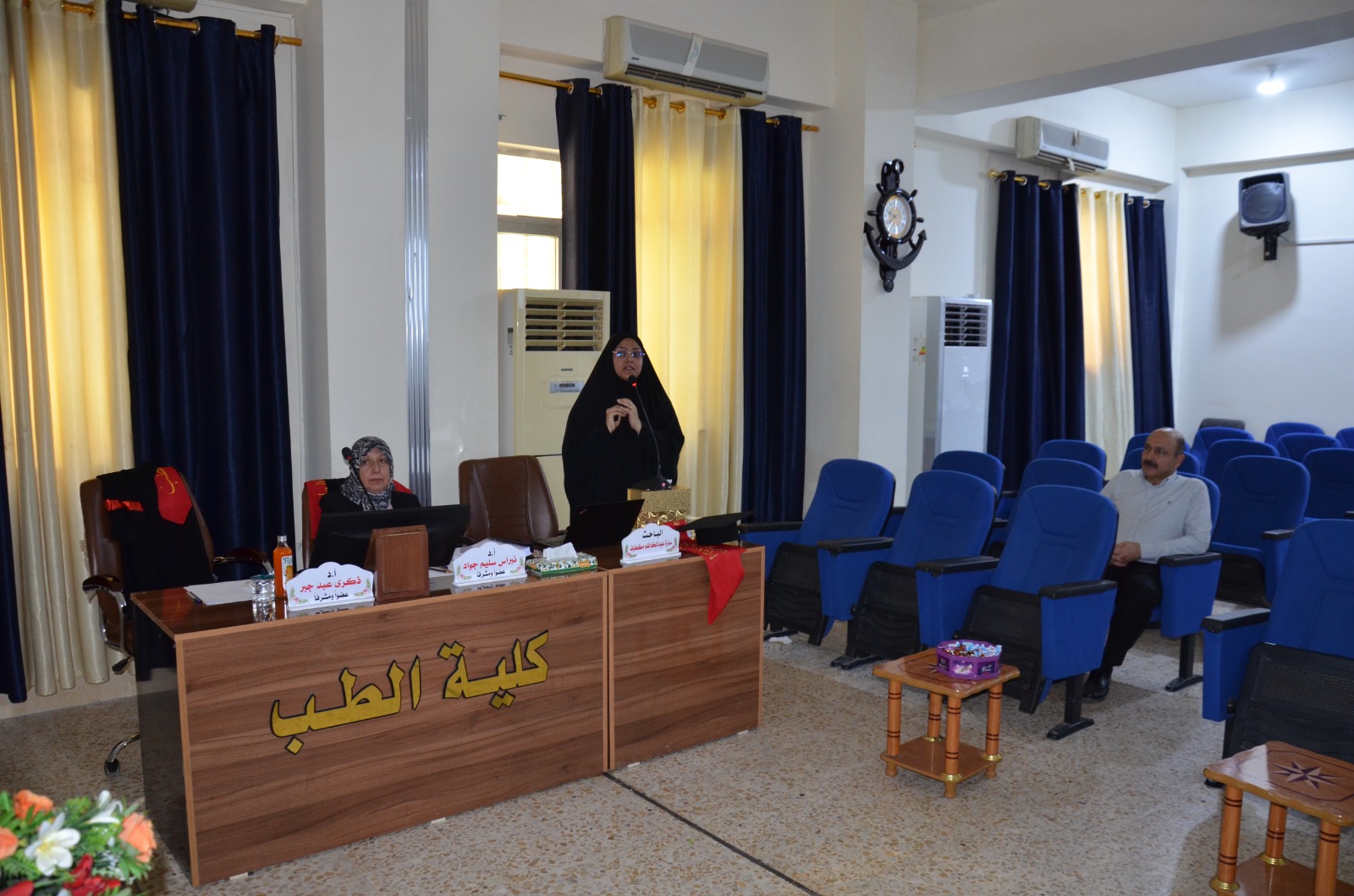
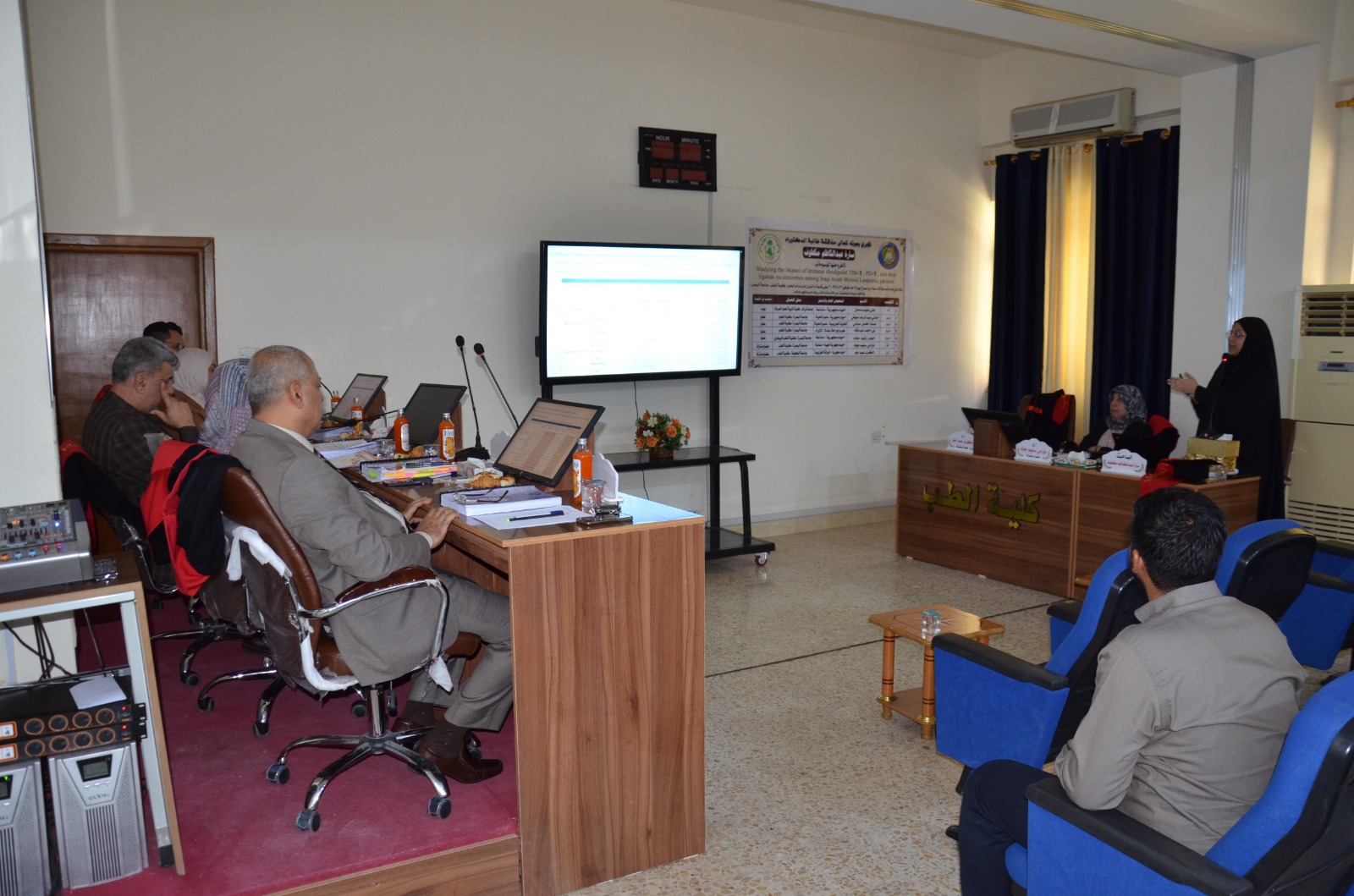
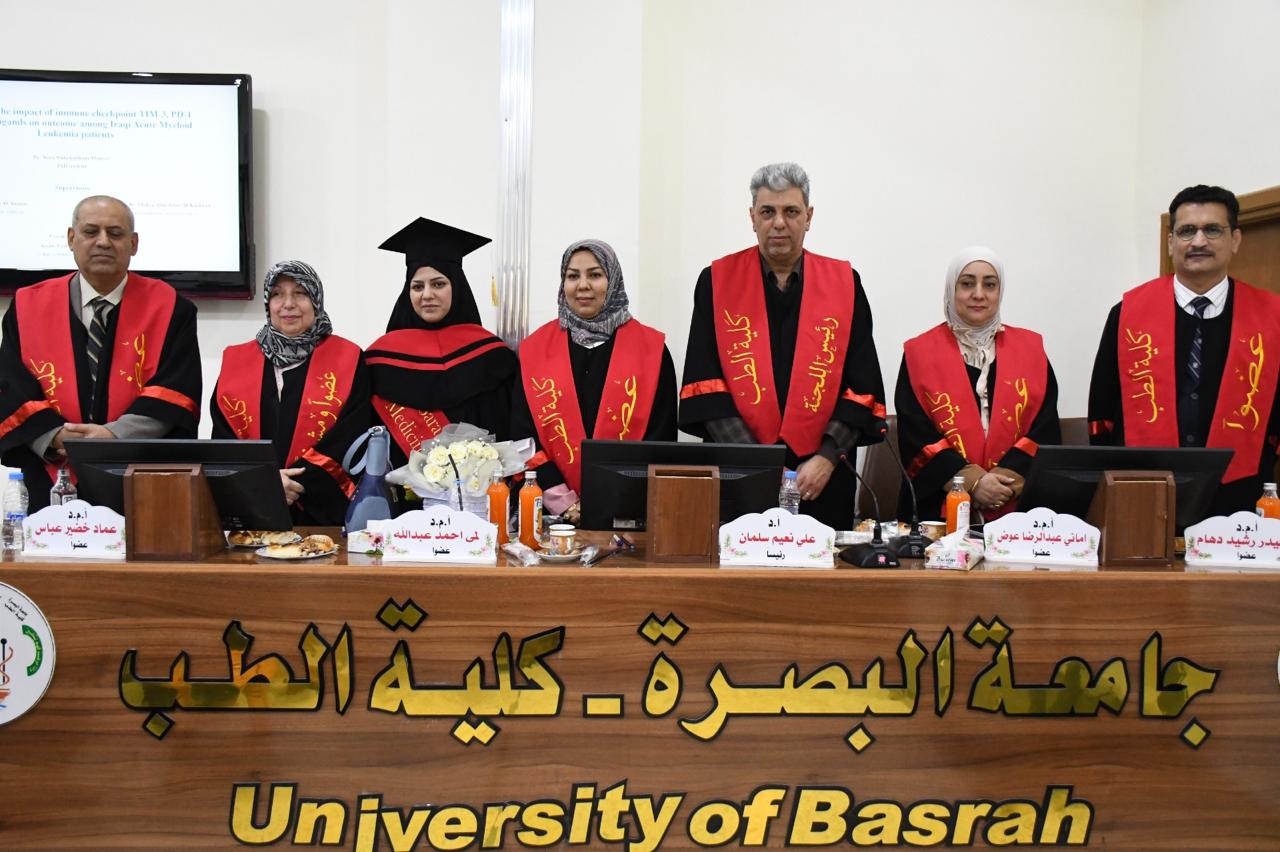
A PhD thesis at the College of Medicine, University of Basra discusses the study of immune checkpoints Tim-3, PD-1 and their ligands in Iraqi acute myeloid leukemia patients. The research presented by the student Sara Abdul-Kazem Maktouf aims to verify the level of gene expression of immune checkpoint receptors (Tim-3 & PD-1) and their ligands (Gal-9 & PDL-1) in patients with acute myeloid leukemia. The study also included detecting the level of gene expression of immune checkpoint receptors (Tim-3, PD-1) and their ligands (Gal-9, PD-L1) in newly diagnosed acute myeloid leukemia patients (before taking chemotherapy) and studying the effect of high or low gene expression of these genes on the patient's clinical condition, disease progression, and response to chemotherapy by following up with patients for a full year (after giving chemotherapy). The study concluded that there was an increase in gene expression with significant differences in patients who did not respond to treatment and had rapid disease progression compared to patients who showed a cure rate and had low gene expression, and the survival rates for patients with high expression of the study genes were lower than those with low gene expression. There is also a significant relationship between the gene expression of these genes and other prognostic biomarkers such as chromosomal variations (using FISH) and CD markers (using Flowcytometery), as the current study has proven that these genes play an important role in determining the patient's clinical condition and the extent of his response to chemotherapy (as a new prognostic biomarker).

